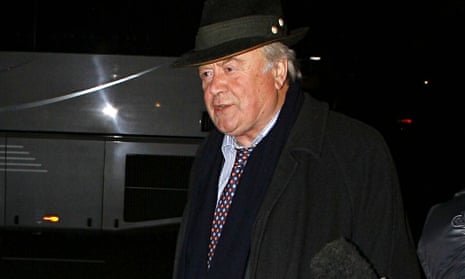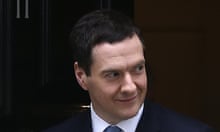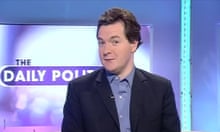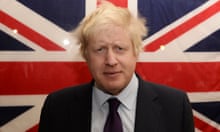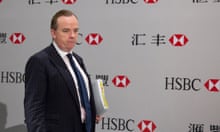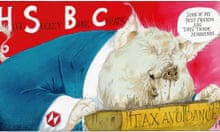Gazing across the Great Room of the Grosvenor House hotel on Park Lane, where Monday night’s Tory winter ball was held, some were struck by the peculiar behaviour of one of the fundraising event’s guests.
Head down, Subaskaran Allirajah, the founder of Lycamobile, who had paid for two union flag-bedecked tables, spent much of the evening focused on his mobile phone, his attention only reluctantly drawn away from his screen when the bidding started for an Anthony Dufort bronze statue of Margaret Thatcher. Enormous cheers erupted from those around Allirajah as he won the maquette for £210,000.
It would have been only human for the prime minister, sitting by hedge fund boss Andrew Laws, whose company, Caxton Associates, is registered in the US tax-haven state of Delaware, to shift a little uneasily in his chair.
Lycamobile is a major donor to David Cameron’s Conservatives – more than £570,000 of its cash has swelled Tory coffers since 2011. But, according to the latest accounts, it hasn’t paid a penny of UK corporation tax since 2007. The company says its past losses eat up any money it would owe and that all its profits are ploughed back into the group.
Perhaps Stanley Fink, the former Conservative treasurer and hedge fund chief, would describe it as akin to his own “vanilla, bland” tax avoidance. “Everybody does it,” Baron Fink of Northwood told the Evening Standard when backtracking on his threat to sue Ed Miliband for calling him a tax avoider in the Commons.
The problem for the image-conscious prime minister – and the opportunity for Miliband – is that this isn’t really true. But a significant number of very wealthy people certainly do – and Cameron’s party has become ever more dependent, even beholden, on those people for its political survival.
It’s an uncomfortable fact. Some, though, are now mulling whether there is a bigger issue at hand: could this short-term PR challenge, if not dealt with, be a precursor to a bigger, earth-moving scandal in the future?
This weekend Labour spin doctors were in overdrive offering “new research” revealing “the extent to which the Tories are using hedge funds to try to buy the election”. Rich speculators have donated £21m to the Tories since 2010 – nearly 30% of their total income from donations.
On Thursday, the Electoral Commission will publish the September-December 2014 donations, and Labour believes that those will show the Tories are on course to receive more than £30m from hedge funds by the end of this parliament.
“Under David Cameron, the Tories have become the political wing of the hedge fund industry,” claimed Labour’s election campaign vice-chair, Lucy Powell.
“The choice at this election has now been crystallised. This government’s failing plan, which puts hedge funds and vested interests first, or a better future built on the success of working families and raised living standards for all.”
In a speech to the Welsh Labour conference in Swansea, Miliband said: “[The government] has turned a blind eye to tax avoidance because it thinks that, so long as a few at the top do well, the country succeeds. It thinks wealth and power fence people off from responsibility.”
The perfect storm of Monday’s black and white winter ball and the exposure of HSBC files naming some of the Tory benefactors as having Swiss bank accounts has allowed Labour to deploy a sleight of hand: consternation at the tax avoidance of some rich people, and condemnation of tax evasion, has become outright suspicion of all rich people involved in politics. And most of those involved support the Tories, not least Lord Green, the chairman of HSBC until 2010, after which he became Cameron’s minister for trade.
It was what one Labour spin-doctor was getting at, albeit clumsily, in suggesting that, just as the hacking of the phone of the murdered child Milly Dowler cut through the British public, so would the exposure of the Swiss accounts.
The Daily Mail’s attempt to find a semblance of tax avoidance in Miliband’s mother’s property transactions has given the Labour leader the opportunity to play the valiant crusader, unperturbed by personal barbs. “It doesn’t matter how much I get attacked for this; I’m not backing down,” Miliband vowed in Swansea.
The polls don’t suggest that Labour’s tack has had an immediate impact. Polling by Opinium for the Observer on Tuesday, Wednesday and Thursday suggests that the party has not extended its two-point lead on the Tories. Indeed Cameron’s ratings (41% approving, 42% disapproving) are at the highest level since 2011, when he deployed a veto at EU talks; Miliband continues to struggle (23% approve, 52% disapprove). But it might cut through in time. And that, for Ken Clarke MP, is troubling. Although not necessarily just for the obvious party political reasons.
A former Tory chancellor and, until July, a cabinet minister, Clarke has never been one to stick to the script. Since he returned to the backbenches, this has become ever more true. While others would tread carefully around tax avoidance and party donors so close to the general election, he is willing to say it as he sees it. And to his mind, the ongoing row over the HSBC files naming rich people with Swiss accounts is hogwash.
“I think the tax thing is all rather bogus unless, and until, someone shows one of the celebrities being named being the slightest bit involved in any tax evasion,” Clarke said.
“At the moment, it is all based on the discovery that some wealthy people have bank accounts in Switzerland, which, obviously, was utterly unknown to the readership and was a shocking revelation,” he chortles.
But the one-time candidate for the Tory leadership does see the damage the current row could inflict on his party, and on politics generally: “I personally think it is all part of the amazing atmosphere of cynicism which then turns to hysteria surrounding our political system.
“Like any western democracy, we now have 20% of the population who will vote for nihilist protesters, left or right, and have a very, very low regard for politicians in the active parties of government. And these silly rows – this one based on no news at all – to support the kerfuffle, just add to all that.”
For Clarke, last week’s events are a symptom of a problem that political leaders have ducked for too long.
In 2008 he led a group, which included the current chair of the treasury select committee, Andrew Tyrie, to examine party funding.
For all Miliband’s attempts to link the Tories to rich donors, at the time it was Labour’s relationship with its donors – unions and otherwise – that had caused a series of scandals, including allegations of cash for peerages. That had even prompted a police investigation. Indeed, in the runup to the 2005 general election, the Lib Dems received £2.4m, their largest ever gift, from a company controlled by fraudster Michael Brown.
“A steady troop of forced ministerial resignations has been accompanied by serious questions over the access to power and patronage that money can buy, culminating in the first-ever interviewing by the police of a prime minister in office,” Clarke reported.
His group recommended a £50,000 cap on donations, which could be lowered over time.
“I haven’t changed my mind,” he said last week. “My view remains that it would be desirable to cap individual donations and to increase the contribution to expenses of political parties from the state.
“It puts everything above allegations of conflict of interest if the parties are not beholden to individual people for large sums of money.”
It is not so much the influence that rich donors may have on political parties as much as the perception of impropriety that can be damaging.
The political scene is episodically shaken by rows over donations or donors, valid or otherwise, and each time public confidence in politics takes a further hit.
“I think we will continue to have, in this case, rather artificial rows of this kind because people won’t accept that a parliamentary democracy needs political parties and, if the public won’t finance them, then interest groups and millionaires will have to,” Clarke said.
Clarke’s cap wasn’t implemented. In cross-party talks, Labour has always jealously guarded its union income, and one senior Tory said that once the rich men’s cash started coming Cameron’s way rather than New Labour’s, the instinct for reform on the Tory side became muted.
Another valiant stab at change was made in 2011 by the committee on standards in public life. It published a report calling for a £10,000 annual cap on donations.
But this wasn’t about avoiding poor PR. The chairman, Sir Christopher Kelly, was clear: another party-funding corruption scandal was inevitable without change. Maggie O’Boyle, a spokeswoman for the committee, told the Observer: “The general worry the committee had was the way that money, influence and power was starting to come together. From the point of the view of the committee, yes, there is a problem of perception, but there is an issue as well.
“We thought it was unhealthy that all the parties were getting more money from fewer people. It put competitive pressure between themselves to raise more money. But it is unhealthy that party leaders get drawn into soliciting funds.”
The committee suggested an extra £23m a year to be spent funding the parties, about 50p a person a year. And, again, nothing happened.
“Despite promises in all three party manifestos, they didn’t see it through. We knew it was difficult and, given the recession, we tried hard to give a realistic amount of time for the recommendations to be implemented,” Boyle said.
Some Tory modernisers think that the status quo can still work for their party, as it must, because the public won’t stand extra funding for the parties. Ryan Shorthouse, director of the Bright Blue thinktank, whose president is former universities minister David Willetts, said that the key was to be transparent (the table plans and guest list at the winter ball were secret) while offering a policy platform that could not be seen to favour any one part of society.
“Polling shows that one of the biggest reasons people don’t vote Tory is that it is seen as a party for the rich,” Shorthouse said.
“The modernisation of the party is about demonstrating that it stands for community, not corporatism. The Conservatives must make sure in the final budget of this parliament that any changes to tax and benefits help those on modest incomes the most.”
But Boyle’s final words on the subject should surely be of concern to everyone, including the prime minister. This is not all about image, as important as that can be.
“The recent black and white ball or stories about Labour’s reliance on Unite is an example of the sort of things we were concerned about,” Boyle said.
“The conclusions [of the committee on standards in public life] were that there was an issue: that the present system wasn’t sustainable, and if not corrupt, it is corruptible.”
